Infinity Rehab Therapists share their insight and experience with new grads to the profession. Listen in:
I think the single best piece of advice would be “to start developing their ability to document skilled services now.” Learn from those who do it well and learn from those who do not to see the difference. This is probably one of the most important skills they need to learn in today’s therapy fields.
Scott Newman
I’m not sure I can narrow my answer to just ONE piece of advice. First, make sure to spend time working with and observing as many different therapists as you can. Everyone uses different approaches, different techniques, different ideas for treatment. In your career you will need them ALL at some time or another. Second, take the time to document carefully. It has become the most important way for us as a profession to prove that we make a difference, that we are needed, that payment should be made for our services. Third, become familiar with at least three functional tests. Learn to administer them and score them in your sleep, and you will always have measurable data to share with the physician, nursing staff, family, and most importantly, the patient. Everyone likes to know they are making progress, whether it’s losing weight or getting stronger or better balance or able to shower independently or…(you get the idea!)
Fourth and most importantly, remember to have fun with your patients!
Johanne Schmidt OTR/L
You just learned a lot, but you don’t know it all. Be flexible with new ideas.
Samuel Parker
Always advocate for your patients. Do unto others as you would like done unto you and those will be rewarded.
MaryOlivia Violante
Observe, learn and grow. We don’t graduate knowing much, and the more you observe other clinicians (even of different disciplines) the more you will learn and the more well rounded clinician you will become.
Beth Fabel, OTR/L
Be flexible and patient.
Carolyn Staples
Start your 401K right away!
Christine Namey
Don’t think you have to know everything the first day. Be confident in what you do know.
Jennifer Dunkle – COTA
Don’t be afraid to ask questions and seek advice from other therapists. Seek out a mentor. Don’t try pretend you know everything.
Marianne Angler – PT
Flexibility is your strength.
Listen to your patients ideas, they might teach you a great deal.
There is more than just one way to accomplish the same goal.
Instead of spending your energy adjusting a patient to your plan, try adjusting your plan to the patient.
A good professional also looks like a good professional.
Nelson Henriquez
It’s okay to not be comfortable with every type of patient/diagnosis.
Kim Gabourel, MSPT
I would advise that you should do what you feel is the right thing to do for your patients. Be sure that you are able to sleep with the choices you make. Remember that some day, you may be that patient…
Alma Cavazos,PTA,DOR
Don’t think you don’t know anything
Nadine Schechtman
If your patient isn’t “getting” what you’re teaching, you may not be teaching it right.
Derek Fenwick
I would say to have a life-long learning plan. The long-range plan may not be clear immediately after graduation from therapy school, but always be thinking ahead of ways to gain more knowledge.
Michael Billings
My advice never ever ever be afraid or embarrassed to ask questions
Kathe Hotz
If I could get to the grad prior to graduation, I would encourage them to take/ask for classes in dementia, dysphagia, and a combo of the two because this will make up a large portion of your caseload in long-term care.
Tracy Behler
I would advise them that although it feels like there’s an overwhelming amount to learn, they will keep learning throughout the years that they work and “it will come”.
Kim Levin
Never be afraid to ask questions. There are no dumb questions. We have people’s lives in our hands and we need to make sure we have all the right information.
Taunya Wachter, PTA
“Never think you know it all or have arrived. A career, like life, is a journey, not a destination”.
“Love what you do…even when you don’t for the moment”
“Invest in your own learning and in your profession. It comes back to you ten-fold in terms of opportunity and experience”
Bob Thomas PT, MSPT
Choose your first job and the people you work with like you were choosing parents. Look for supportive, encouraging, positive, nurturing co-worker and environment. Just as in childhood a positive environment in which to grow, learn, and establish your skills will lay the strongest foundation and lead to self-confidence through out your career life.
Scott Welker
I would tell a new grad to do what I found most helpful. I discovered that reminding myself often to be open to learning and willing to go the extra mile is what made my career so satisfying.
Paula Zenk
Well, since I am a relatively new grad (graduated last July) I would like to send the message that it is ok to ask for help, even on the most simple things because getting it right and being safe need to be the priority. Never be afraid to ask for help!
Yahtil West, MSOTR/L
Clinical advise – your greatest tool as a therapist is your relationship with your patient. Listen and build trust. Even when you are a young and inexperienced therapist, you will have great clinical outcomes if your patients trust you and sense that you are partners in the rehab journey.
Employment advise – surround yourself with great therapists that are willing to share ideas with you. Don’t resist productivity standards – put your energy into ways that you can be successful in productivity, not why you can’t be successful.
Teamwork advise – communicate a lot with nursing, social services and other members of the rehab team. The highest quality of care occurs when everyone is communicating. Your job will be so much easier when everyone in the building is your ally.
Documentation advise
— Chart as much as you can with the patient in front of you.
— Avoid charting when you are tired; charting 2 or 3 times throughout the day will be better than 12 daily notes at the end of the day.
— Every daily note should take no more than 3-5 minutes. Set a timer and race against the clock (I have done this for years and it really works – i.e. 7 charts in front of me, I set the timer for 21 minutes).
— On a 3 x 5 card write down the 5 key elements to a Summary of Medical Necessity (on the eval), Weekly Summary , and Discharge Summary . Example for Discharge Summary might be:
1. Where are they going?
2. How did they progress in rehab treatment plan and did they benefit from skilled care?
3. What were the barriers in treatment and how did you overcome those barriers
4. Did they meet their goals?
5. What follow-up services, DME etc will they need upon discharge.
Carry the 3×5 card with you and use it as a template to organize your thoughts and justify skilled care. After about a year you won ‘t need your tattered card anymore. So that’s my advise!
Susan Churchill
Let the Infinity Mission & values be your guide, add humor and you will do well in any setting
Sarah Walker, COTA/L, DOR
You don’t have to know everything, you can always look it up in a book.
Jennifer Lo, OTR
I tell them that no one has ever seen it all and we all encounter situations/conditions/treatment conundrums which baffle us for a multitude of reasons such as changing work settings, new diagnoses we haven’t dealt with, new modalities to learn, being away from practicing for a while, etc. The sign of a good therapist is a person who is willing to admit they don’t have the answer and then proceeds to look for and apply the correct strategy. I say this in context of telling them that they know they are finally getting the hang of it when they actually say to themselves, “I have seen this before.” When they realize that they have built a “repertoire” then they are on their way to feeling comfortable in their current setting.
Cathi Lamoreux, SLP
My advice to the therapist would be the focus on the eval. In the SNF setting, one of the most critical role functions of the therapist is to complete a comprehensive evaluation as a foundation of the care plan. Its one of the things that certainly separates the therapist from the assistant.
John Shea
“Professionalism is more important in the clinic than in the classroom.”
Adrian Parker Call, DPT
My piece of advice to a new grad would be: 1) Have a willingness to learn something new & keep an open mind. We have the great opportunity to work with great, experienced therapists in all departments (ST, OT & PT); each discipline is very valuable & able to offer wonderful hints & tips on different aspects of treatment techniques. 2) Be respectful of our elders & mindful of their life experiences.
Leah Wilsey
Learn basic Medicare and insurance rules. Learn the difference between Med A and Med B, HMO, etc. and what that means for you as a therapist.
Brenda Johnson, MA/CCC-SLP
No matter how crazy your schedule is, stop before you go into the pt room (etc), take a deep breath, slow down and treat them like they are the only person you have to deal with at that time.
Treat all your patients as if they were your Grandmother.
Deanna Hawley





